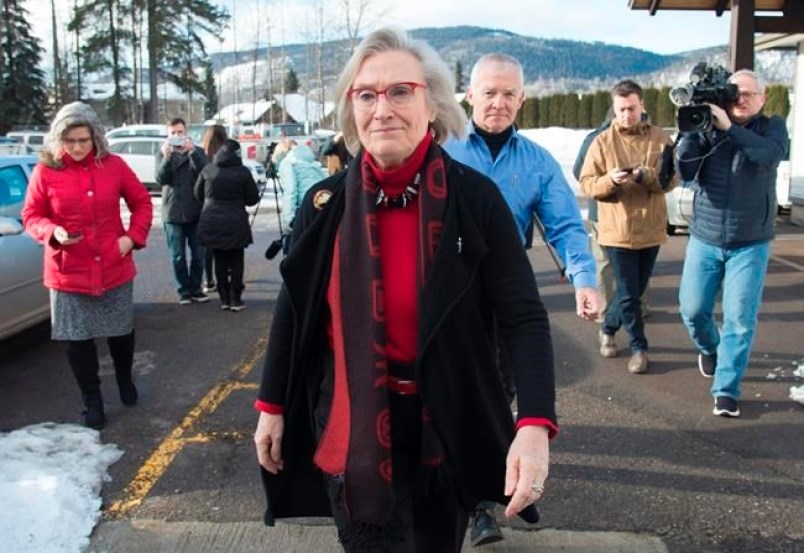Senior government ministers say they remain optimistic talks with the Wet'suwet'en hereditary chiefs will break an impasse over a pipeline dispute that has sparked widespread protests and transport disruptions.
Federal Crown-Indigenous Relations Minister Carolyn Bennett and British Columbia Indigenous Relations Minister Scott Fraser said the discussions are complex but are progressing respectfully.
In a news conference Saturday, Bennett said the fact that the conversations are continuing is "a very good sign."
"We remain optimistic that we will be able to find a conclusion that's really good for the Wet'suwet'en Nation," she said.
The talks began Thursday afternoon in northern B.C. and continued into late into Friday night, and another update is expected later today.
Some Wet'suwet'en hereditary chiefs are opposed to a natural gas pipeline in their traditional territory, an issue that has spurred solidarity protests and blockades across the country.
The demonstrations have disrupted passenger and freight train service over the last three weeks and police have recently moved to dismantle some of the blockades.
Via Rail said Friday that most service will be gradually restored as of Tuesday, including between Toronto, Montreal and Ottawa.
Solidarity protests and blockades have broken out across the country since the RCMP moved into Wet'suwet'en territory in northern British Columbia on Feb. 6 to enforce an injunction to stop a blockade erected by those opposed to the Coastal GasLink natural gas pipeline.
The Wet'suwet'en are governed by both a traditional hereditary chief system and elected band councils. A majority of its councils have approved the pipeline, but some of the Wet'suwet'en hereditary chiefs oppose it running through their traditional territory.
The dispute also encompasses other unsettled land rights and title issues, including who has the right to negotiate with governments and corporations, the fact that the land is not covered by a treaty and remains unceded, and a 1997 court case that recognized the hereditary chiefs' authority and the exclusive right of the Wet'suwet'en peoples to the land but did not specify the boundaries.
The issues raised in the talks are challenging and difficult, Bennett and Fraser said Saturday,
"It's not only about the rights and title... it's 150 years of broken promises and of cynicism that is completely understandable about will the government do what they said they are going to do," said Bennett.
"And how do we make sure that we can allay those fears and say, for both of our governments, that we are really serious about this and we want to be able to change the way and the kind of partnership that we require nation to nation."
– Hina Alam


